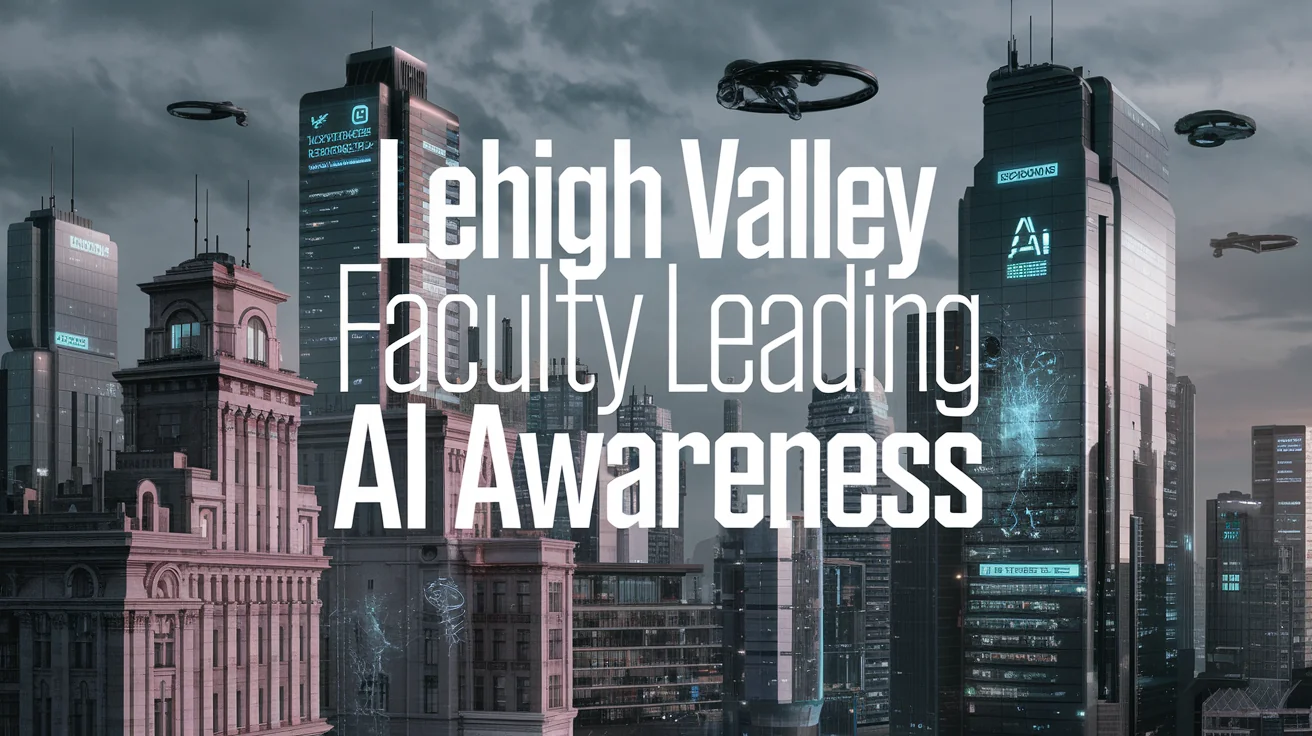Lehigh Valley Faculty Leading AI Awareness

CENTER VALLEY, Pa. — A new program for Penn State faculty aims to empower instructors to utilize artificial intelligence (AI) as a teaching tool while dispelling misconceptions surrounding its use. This initiative is particularly noteworthy as it recognizes the rapidly evolving landscape of AI in higher education.
Penn State Lehigh Valley faculty members Pedro Robles, assistant teaching professor of cyber analytics and operations, and Subhadra Ganguli, assistant professor of business, have been selected by the Schreyer Institute for Teaching Excellence. They will serve as faculty leaders for the AI-Aware Instruction program at the Lehigh Valley campus. This initiative is designed to promote teaching excellence by fostering an environment of experimentation and innovation with AI-aware instructional strategies across various academic departments.
The integration of AI has fundamentally altered how course materials are created and delivered and has transformed the methodologies students employ for completing assignments. As AI technologies continue to develop at a rapid pace, ethical considerations and the ramifications of its capabilities have been brought to the forefront of academic discussions. The role of faculty leaders at Lehigh Valley is to connect their communities with resources and opportunities that encourage excellence in teaching amid these changes.
Robles expressed that the program will help educators develop innovative teaching methods that leverage AI’s potential. He emphasized the necessity of promoting AI literacy and cultivating enthusiasm for using AI as an educational tool. “Penn State wants to build a stronger community around AI practice, ensuring our students are equipped with the necessary skills for their future careers,” Robles stated.
Ganguli highlighted the increasing importance of AI awareness among instructors, asserting that understanding AI’s capabilities is essential for effective instruction and student success. “The future of AI literacy is uncertain, but since businesses are increasingly using these technologies, it’s likely that our students will encounter them after graduation,” she noted. It is imperative for faculty to collaborate and strategize on how to impart AI literacy to students effectively.
While specific project details at Lehigh Valley are still under development, both faculty leaders intend to share their own insights regarding AI integration. Ganguli plans to discuss effective prompt crafting, often referred to as “prompt engineering,” underscoring its value in collaboration with AI. She argued that developing prompt skills alongside subject knowledge is crucial for recognizing the benefits and limitations of human-AI partnerships.
Robles shared that their overarching goal is to eliminate the fear surrounding AI instruction, encouraging faculty to embrace technology rather than distance themselves from it. He remarked, “It’s about understanding AI so we can effectively incorporate it into our teaching and better guide our students toward utilizing these tools productively.”
Robles aims to convey to fellow faculty members the advantageous outcomes of integrating AI into their instructional practices, indicating that many professors already engage with AI, reflecting a growing comfort among students with this technology. He commented, “AI is just another resource to enhance our productivity, whether it’s in academic settings or professional tasks.”
Later this year, discussions will commence with faculty leaders from Penn State’s Commonwealth Campuses to share best practices regarding AI-aware instruction. The subsequent phase of the project will involve dialogues with faculty members at Lehigh Valley concerning AI literacy for both instructors and students, sharing effective teaching techniques involving AI, and establishing a repository of resources dedicated to AI-aware education.
Overall, Robles summarized the initiative succinctly: “AI should be a tool that empowers us, not a crutch that hinders our learning processes.” By promoting understanding and usage of AI, the program aims to cultivate a culture of readiness for students as they transition into their professional lives.